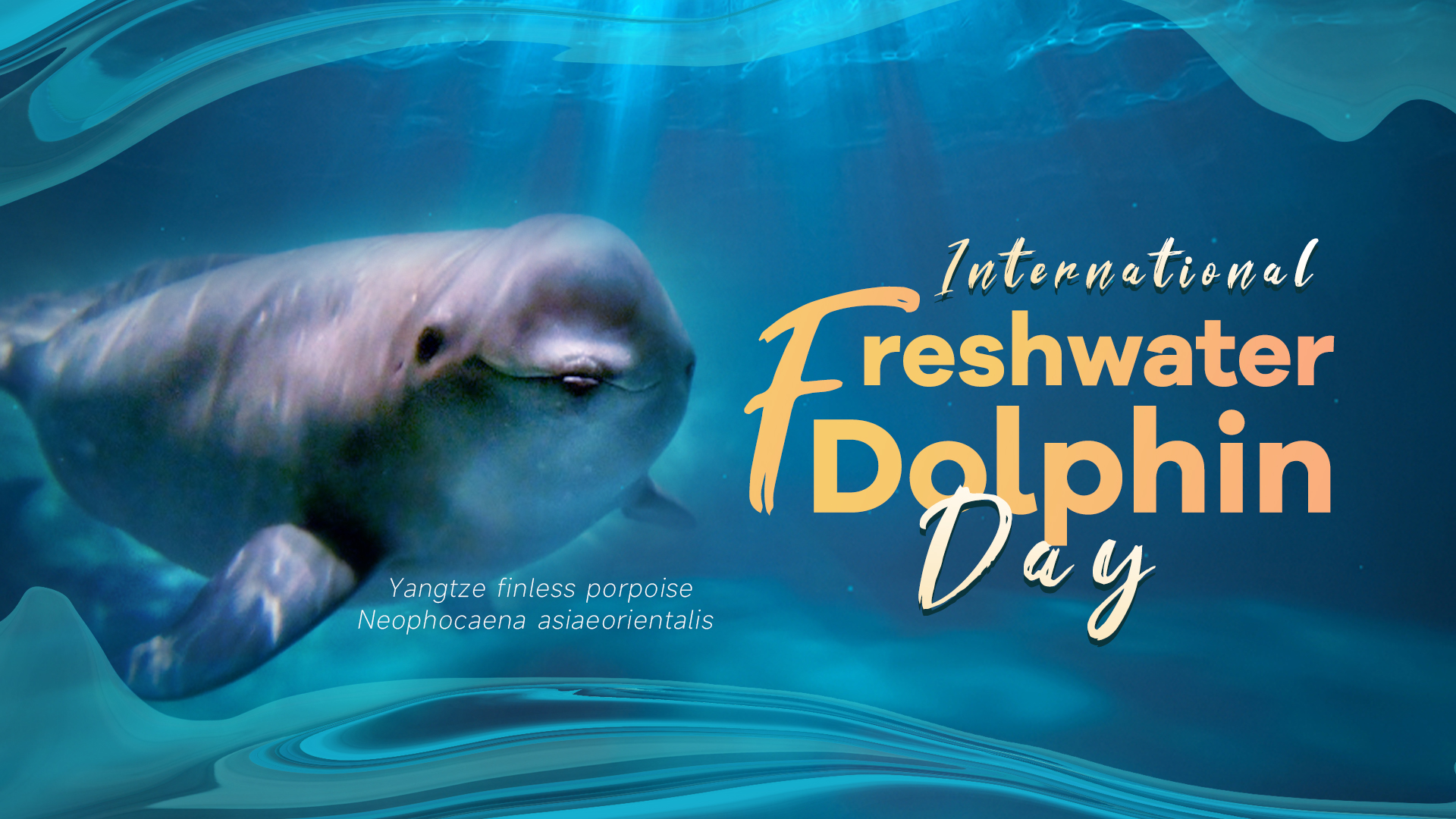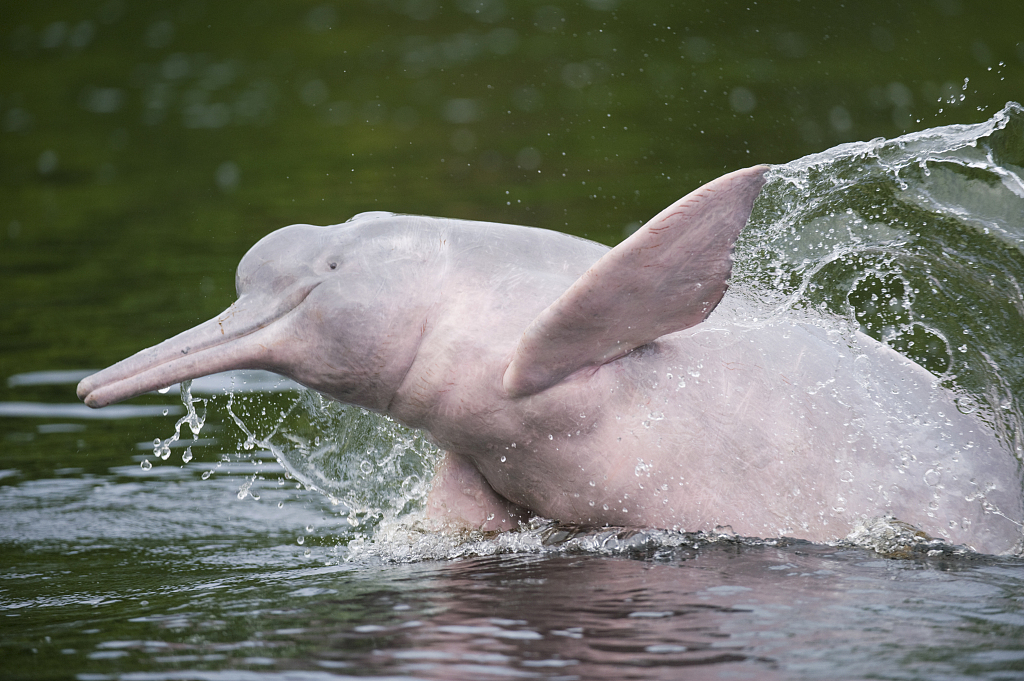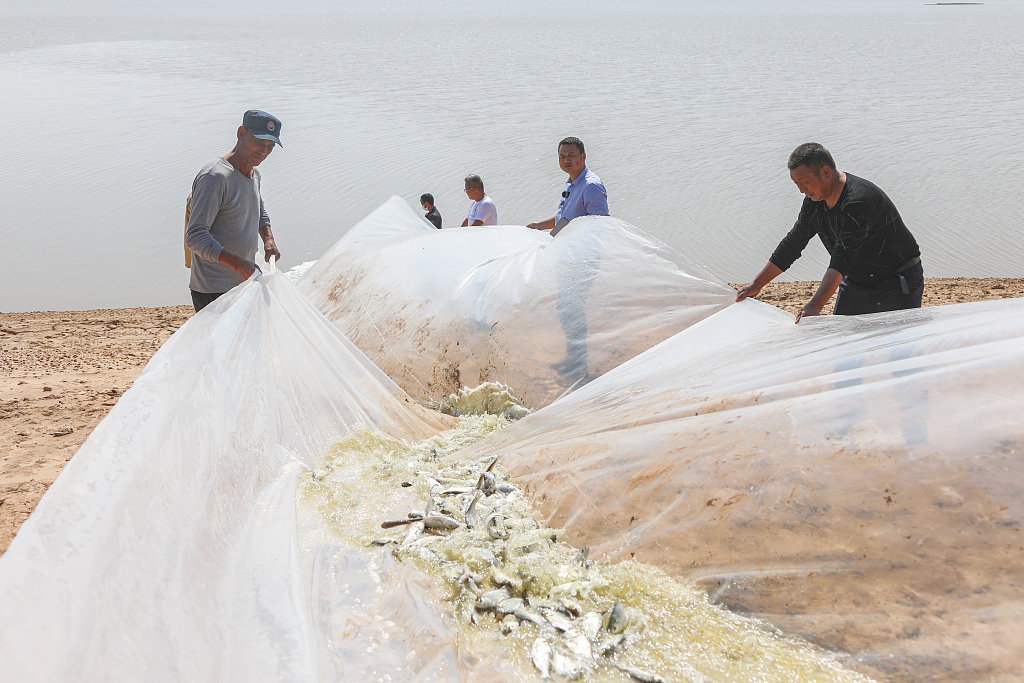00:40

October 24 is International Freshwater Dolphin Day, which aims to raise people's awareness of protecting the freshwater or river dolphins and publicize their significance to the local ecosystem.
There are six extant freshwater dolphin species found in 15 countries, according to the World Wildlife Fund (WWF), covering some of the world's most ecologically diverse river basins in Asia and the Amazon basins in South America. All of the species assessed by the International Union for Conservation of Nature (IUCN) are considered endangered or critically endangered.

Amazon river dolphin. /VCG
Amazon river dolphin. /VCG
The Yangtze finless porpoise, one of the six species, is endemic to the Yangtze River in China. People call it "smiling angel" because its snout is shaped like a grin. The species has been in a gradual decline, from about 2,500 in 1991 to 1,012 in 2017, according to the results of previous survey. This is attributed to various factors like unselected and increased fishing, vessel strikes and habitat deterioration and degradation.
To preserve the ecosystem of the Yangtze basin and recover the population of various fish species, China's government launched a ten-year fishing ban in the Yangtze River, which began on January 1, 2021. The Yangtze finless porpoise will benefit from this measure as they feed on other types of fish.
On September 19, 2022, the fourth Yangtze finless porpoise scientific expedition began in Wuhan City, central China's Hubei Province to survey the population and living conditions of the critically endangered species. Different porpoise pods were seen along the river in different provinces. The porpoise is at the top of the food chain in the Yangtze River, which reflects the overall ecological quality of the water.
According to Liu Zhiyu, the deputy director at Ministry of Water Resource, since July 2022, high temperature and less precipitation were observed in the Yangtze basin. The water level decreased profoundly in its main stream and other larger lakes, including the largest freshwater lake, the Poyang Lake in east China's Jiangxi Province. Different types of fish, including porpoises, were trapped in small ponds or streams before they could get to their habitats.

Fish are poured into Poyang Lake to provide extra food for endangered Yangtze finless porpoises in east China's Jiangxi Province, October 14. /CFP
Fish are poured into Poyang Lake to provide extra food for endangered Yangtze finless porpoises in east China's Jiangxi Province, October 14. /CFP
On October 14, the first batch of fish was poured into the Poyang Lake as food for the porpoises.
Also, a 24-hour patrol is taking place in the Poyang Lake every day to closely monitor the condition of the porpoises in water.
In addition, the Jiujiang Port and Shipping Administration issued a notice in September to regulate water traffic in the main distribution area of the porpoises in the Poyang Lake. Navigable waters and restricted speed waters were created to avoid the collisions with the species.
Today, a decision on strengthening the protection of the Yangtze finless porpoise was made jointly by Nanjing and Zhenjiang City of east China's Jiangsu Province and Ma'anshan City of east China's Anhui Province.
The decision clarifies the integrated protection goals by establishing regional cooperative mechanisms in metropolitan areas, improving protection systems in the upstream and downstream, and carrying out cooperative activities.
According to the decision, October 24 is also set as Publicity Day for the Protection of the Yangtze Finless porpoise. The three cities will work together to reinforce education about the preservation of the species.
(Cover image designed by CGTN's Yin Yating)
(If you want to contribute and have specific expertise, please contact us at nature@cgtn.com)